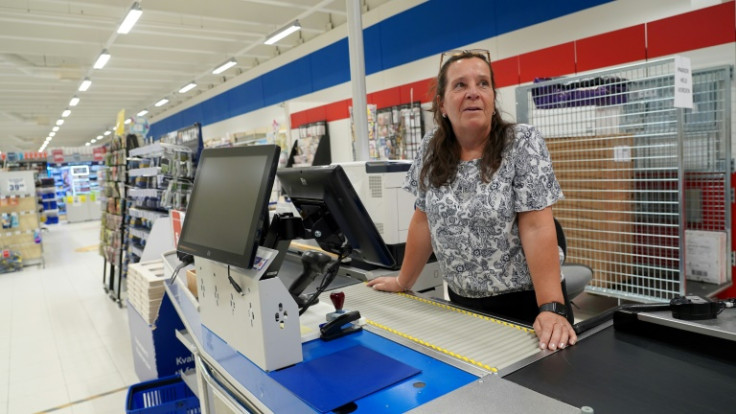Small businesses face declining confidence in Q2 2023 during economic challenges
Small businesses faced a setback in the second quarter of 2023 as the FSB's SBI headline confidence indicator dropped sharply from -2.8 points in Q1 to -14.2 points.

Despite starting this year with optimism, small businesses experienced a drawback in the second quarter (Q2) of 2023. The FSB's Small Business Index (SBI) headline confidence indicator, which was at -2.8 points in the first quarter, fell sharply to -14.2 points in the second quarter.
The drop shows the economic challenges that small businesses experienced in the second quarter, with higher-than-expected inflation and two base rate hikes putting pressure on index-linked debt repayments.
Although the second quarter remains negative, it marks an improvement from the same quarter in 2022, when confidence plummeted to -24.7 points due to soaring energy costs in the aftermath of Russia's invasion of Ukraine and skyrocketing inflation, triggering the first wave of the cost of doing business crisis.
The impact of the economic challenges was not uniform across sectors. For example, accommodation and food services saw an 18.1-point drop to -35.8 points, and wholesale and retail experienced a 12.6-point decrease to -37.8 points.
Revenues in the second quarter of small businesses were consistent with the previous quarter, with one in three reporting an increase (33%, compared to 34% in Q1) and two in five reporting a drop (41%, unchanged from Q1).
Looking ahead, small businesses' revenue projections have dipped. The report indicated that only a third (32%) anticipate a sales surge in three months' time. This is in comparison to 39 per cent of businesses in the first quarter. Also, 36 per cent of businesses are expecting sales to fall, compared to a quarter (26% in Q1).
Nonetheless, the medium-term outlook shows some promise. This is because a little over half of small businesses expect growth in the following year, up from 46 per cent in the first quarter. There has been stability at around 14 per cent in Q2 in the proportion of businesses expecting contraction, compared to 13 per cent in Q1.
In Q2, employment fell as more small businesses saw labour costs rise. One in every seven small businesses reported a decline in the number of employees in Q2 (14%, up from 12% in Q1), while one in every eight businesses reported an increase (12%, unchanged from Q1).
When it comes to growth impediments for all small businesses, the home economy remains the most often mentioned worry, listed by three out of every five (61%, same from Q1). Consumer demand increased from 30 per cent in Q1 to 36 per cent in Q2, while utility and gasoline expenses fell from 33 per cent to 25 per cent in the first quarter and 13 per cent to 8 per cent in the second quarter.
The majority of small businesses showed concern about the rising prices. A reported 85 per cent noted that they had grown from the same period in 2022. Although, this seems to be a modest decrease from the former quarter's high record of 92 per cent. Compared to the first quarter, labour costs have gone up for nearly half of small businesses (49%), while 20 per cent have seen an increase in financing costs.
The financing sector for small businesses has also shifted. Thirty per cent of small businesses' finance applicants were offered a rate of 11 per cent or higher in the first quarter. In the same quarter last year, this was true for only one out of every eight businesses.
Similarly, between Q2 2022 and Q2 this year, the number of small businesses that applied for finance, and were awarded a rate of up to 4 per cent, plummeted from more than one in three (37%) to barely one in twenty (5%).
Martin McTague, FSB's National Chair, stated: "Although the upturn in small firms' confidence from the first quarter did not carry over into the second quarter of the year, the message from our research is that small firms' confidence in the future is looking rosier."
He noted, for instance, that more than 50 per cent of all small businesses expect growth next year, demonstrating their potential and resilience.
McTague asserted that there will undoubtedly be difficulties ahead, saying that small businesses are already feeling the effects of rate increases on their margins and through weaker customer demand, and future increases will undercut the hopes for a confidence rebound. He said small businesses are acutely aware of the risk that interest rate increases will exceed the level required to contain inflation, instead acting as a drag on economic growth.
McTague urged the government to take action to support small businesses, addressing late payment issues and planning programs to help them grow and invest.
He emphasised that the right growth conditions could lead to a groundswell of economic activity, but with the home economy perceived as the greatest obstacle, small businesses find themselves in a catch-22 predicament.
© Copyright IBTimes 2025. All rights reserved.






















